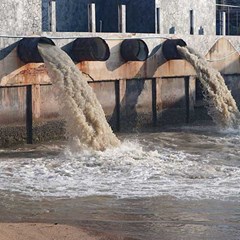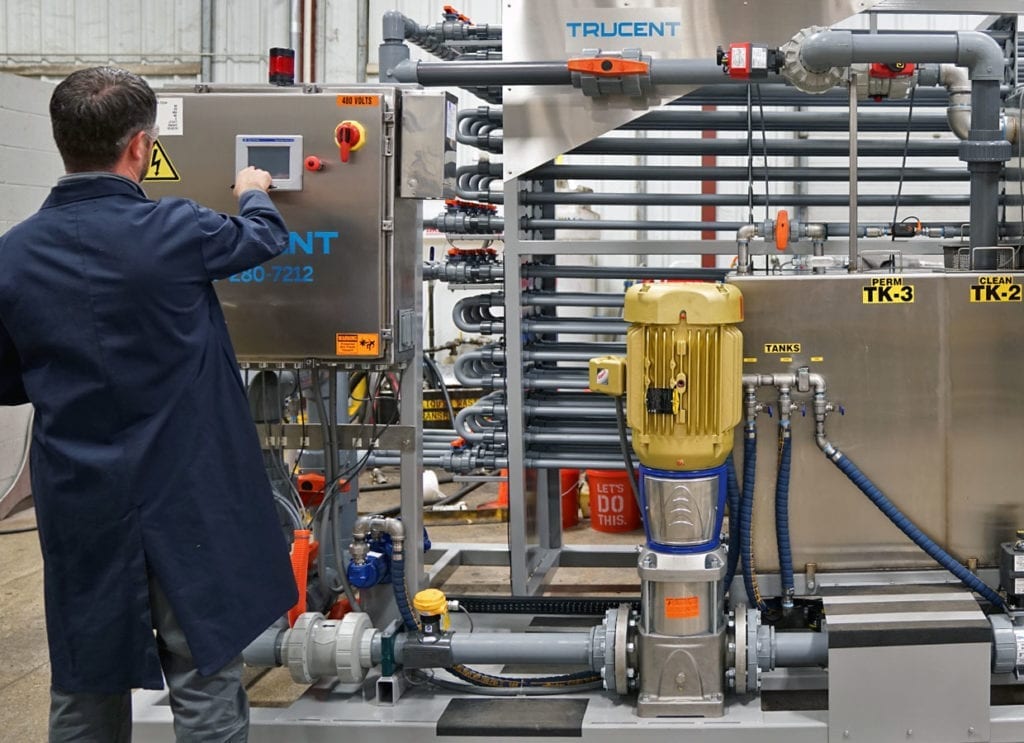Industrial Waste Water Treatment-- Advanced Solutions for Cleanser Effluents
Industrial Waste Water Treatment-- Advanced Solutions for Cleanser Effluents
Blog Article
Challenges and Solutions in Hazardous Waste Water Treatment
The treatment of industrial wastewater provides a complex variety of difficulties, varying from stringent governing conformity to the complexities of price management and technical restrictions. The variability in waste make-up additionally complicates the efficiency of standard therapy approaches, typically resulting in risen operational expenses.
Regulatory Conformity Difficulties
Exactly how can industrial facilities navigate the complex landscape of regulatory conformity in wastewater therapy? The regulative structure governing wastewater management is diverse, usually varying by territory and kind of market. Facilities must abide by federal, state, and neighborhood policies that dictate effluent top quality requirements, discharge restrictions, and surveillance needs. Failing to conform can lead to serious charges, consisting of penalties and operational shutdowns.
To effectively take care of these compliance difficulties, centers should apply robust tracking and reporting systems that guarantee real-time information collection and evaluation. Normal audits and danger assessments can determine potential compliance voids, enabling proactive changes in treatment procedures. Employee training programs concentrating on governing expertise and best methods are necessary to promote a culture of conformity within the organization.
In addition, engaging with regulatory firms can offer valuable understandings and clarify uncertain regulations. Facilities may also benefit from talking to environmental professionals who concentrate on wastewater treatment compliance, making sure that they remain abreast of advancing policies. By adopting these methods, commercial facilities can not only satisfy compliance requirements however likewise enhance their functional effectiveness and ecological stewardship.
Price and Financial Barriers
Navigating governing compliance in wastewater therapy usually offers considerable economic difficulties for industrial facilities. The expenses linked with executing required treatment technologies, maintaining compliance with strict policies, and handling functional costs can be intimidating. Several companies face high initial funding expenses for the building or updating of wastewater treatment plants, which might strain spending plans, especially for medium-sized and small enterprises.
Additionally, recurring operational costs, consisting of upkeep, labor, and chemical inputs, add to the financial burden. The unpredictability of rising and fall energy rates and the potential need for added investments to fulfill advancing laws intensify these economic pressures. Oftentimes, the lack of economic incentives or assistance from federal government bodies makes it much more tough for services to warrant financial investments in sophisticated treatment systems.
Furthermore, the economic practicality of wastewater treatment remedies is usually questioned, specifically for sectors with limited revenue margins. It is important for industrial facilities to check out cost-efficient methods, such as taking on innovative funding options, engaging in partnerships, and leveraging emerging technologies that can aid reduce these financial obstacles while making certain compliance with ecological requirements.

Technological Limitations
Various technical constraints prevent the effectiveness of industrial wastewater therapy processes. One substantial obstacle is the inadequacy of existing therapy technologies to resolve complex pollutants. Numerous traditional techniques, such as turned on sludge and chemical precipitation, battle with the elimination of arising contaminants, consisting of microplastics and drugs. This limitation often results in the discharge of improperly treated water, which can have destructive ecological effects.
Additionally, the scalability of therapy technologies presents a difficulty. While some innovative approaches, like membrane filtration or innovative oxidation, reveal promise in regulated atmospheres, their execution on a larger range can be practically difficult and much too costly. Upkeep and functional complexities additionally complicate the adoption of these systems, especially for smaller sectors with restricted technological know-how.
The combination click this site of real-time tracking modern technologies additionally continues to be not enough in many therapy centers. Without reliable tracking systems, drivers can not effectively evaluate therapy efficiency or detect prospective failings, resulting in inconsistent effluent high quality. Dealing with these technical restrictions through study and growth, alongside financial investment in innovative options, is important for boosting the efficacy of industrial wastewater treatment and making certain regulative conformity.
Irregularity in Waste Make-up
In the world of commercial wastewater treatment, the variability in waste structure presents a formidable challenge. Industries create wastewater with varied characteristics, affected by factors such as production procedures, resources, and operational methods. This heterogeneity makes complex the therapy procedure, as traditional systems frequently have a hard time to effectively resolve the variety of pollutants existing.
For example, wastewater from food handling might have high degrees of organic issue, while effluents from chemical manufacturing might consist of dangerous compounds and heavy metals. This variance necessitates versatile treatment strategies to guarantee compliance with ecological regulations and protect public wellness. In addition, variations in waste composition can take place in time, influenced by adjustments in production timetables, upkeep tasks, or the intro of new products.

Ingenious Treatment Solutions
Innovative treatment solutions are essential for dealing with the intricacies of industrial wastewater management. Typical methods typically fall short in successfully eliminating a large range of contaminants, specifically in facilities with varied effluent streams. Current innovations concentrate on incorporating advanced innovations to improve therapy effectiveness and sustainability.
One appealing method is making use of innovative oxidation procedures (AOPs), which leverage powerful oxidants to break down natural toxins. AOPs, consisting of photocatalysis and ozonation, can considerably lower harmful compounds and improve effluent high quality. Additionally, membrane layer bioreactor (MBR) modern technology has actually obtained grip, integrating biological treatment with membrane layer purification, leading to top notch effluent and reduced footprint.
One more innovative service is the application of resource recovery systems. Methods like anaerobic digestion not just deal with wastewater but additionally create biogas, Check This Out which can be used as a renewable resource resource. In addition, the adoption of expert system and artificial intelligence designs can enhance treatment procedures by predicting variants in wastewater composition, thereby enhancing operational effectiveness.
These ingenious options not only address governing conformity yet additionally promote ecological sustainability, leading the way for a more reliable and resilient industrial ecological community.
Conclusion
In final thought, resolving the difficulties of industrial wastewater therapy requires a diverse technique that integrates regulatory compliance, price management, and technical innovations. A dedication to constant improvement in treatment methodologies will inevitably add to the reliable management of industrial wastewater and ecological security.
The therapy of commercial wastewater presents a multifaceted variety of difficulties, varying from rigid regulative compliance to the ins and outs of expense administration and technical constraints. Industrial Waste Water Treatment.Browsing governing conformity in wastewater therapy commonly presents considerable monetary obstacles for industrial centers. Addressing these technical limitations via study and advancement, alongside financial investment in cutting-edge options, is vital for enhancing the effectiveness of industrial wastewater treatment and guaranteeing regulatory compliance
Wastewater treatment facilities have to invest in durable monitoring systems and versatile therapy technologies site capable of accommodating differing influent characteristics.In conclusion, dealing with the difficulties of industrial wastewater therapy needs a complex technique that incorporates regulatory conformity, cost management, and technical innovations.
Report this page